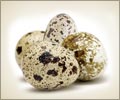Having siblings and keeping a pet dog at home may reduce the likelihood of egg allergies in infants, according to a new study published in the Allergy Journal.
Egg allergy is one of the most prevalent food allergies in children. This allergy may go away as the children grow older, but there are greater chances that these children will develop chronic allergies such as asthma or allergic rhinitis later in life. Researchers believe that understanding the risk factors for egg allergy may help understand the development of these chronic allergies later in life.To determine the risk factors, Jennifer Koplin from the Murdoch Childrens Research Institute, Australia, and her colleagues investigated the role of environmental and demographic factors on the development of egg allergy in 5196 one-year-old infants.
The major findings were –
• 10.8 percent of infants who had no siblings were allergic to egg. Risk of egg allergy decreased as the number of siblings increased (3.7 percent in infants with three or more siblings). The researchers hypothesized that ‘an increase in maternal exposure to microbial stimulation during pregnancy resulting from contact with young children is responsible for the observed decrease in egg allergy in offspring’.
• The risk for egg allergy was less in infants who had siblings under the age of 6 years as compared to those who had 6-year-old and older siblings.
• 5.9 percent of infants who had dogs at home were at the risk of egg allergy as compared with 10.2 percent of infants who did not have dogs at home, suggesting that microbial exposures associated with pet keeping could be the reason for decrease in allergy risk.
• Preterm infants were less likely to be egg allergic. The researchers suggested that this may be due to ‘differences in the type and timing of trans-placental exposure to allergens, pathogens or gastrointestinal flora’.
• Having one or more parents born in East Asia was a high risk factor for egg allergy. ‘Interestingly, parents born in East Asia were less likely to report a history of allergic disease themselves, while their infants are at increased risk of egg allergy and eczema’, say the researchers. This was explained by them as a ‘gene-environment interaction’ where immigrants had genes that protect against parasite infection but increase allergy risk when growing up in a pathogen-poor environment.
The researchers concluded – ‘These findings may provide further support for a role of the hygiene hypothesis, in combination with genetic factors, in the development of allergic disease’.
Reference: Koplin JJ, et al. Environmental and demographic risk factors for egg allergy in a population-based study of infants. Allergy 2012; DOI: 10.1111/all.12015.
Source-Medindia














